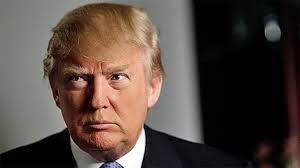 Although I am not a lawyer or a diplomat, I must admit that reading the draft of the Paris agreement that was released on Saturday has made me optimistic that an agreement is in sight. The text, widely sighted in the press and other analysts still has a number of open issues to resolve over the next week of negotiations. The good news is that it is only 20 pages long and my guess is these issues will be ironed out or diplomatic language found to get around them.
Although I am not a lawyer or a diplomat, I must admit that reading the draft of the Paris agreement that was released on Saturday has made me optimistic that an agreement is in sight. The text, widely sighted in the press and other analysts still has a number of open issues to resolve over the next week of negotiations. The good news is that it is only 20 pages long and my guess is these issues will be ironed out or diplomatic language found to get around them.
The $100 Billion Question
At its heart, it seems to me, the agreement puts forward nothing less than a new vision of the world. This is a world fundamentally at peace where the nations of the planet agree on a clear and present danger and on the overall lines of what to do about it.
In this world, there will be an enormous transfer of money, perhaps as much as $100 billion per year, from the richest countries to the poorest. As I read it, this commitment is at the core of the agreement and is aimed to ensure that economic development can be compatible with limiting the effects of climate change.
There is, however, a clause in the deal which says that implementation in poor countries is contingent on the financing. The money is supposed to start flowing in 2020 and for me how these funds will be found, managed, and used will become one of the key political issues of the next decade. While part of it will pay for alternative sources of energy, they will also fund the REDD+ program which essentially creates a mechanism for the developed world to pay countries for NOT harvesting their forests.
New Institutions
Managing the agreement will require the creation of a number of new institutions which are also spelled out to some degree in the draft. These include a permanent secretariat of the convention itself, a number of political and technical groups, and an International Tribunal of Climate Justice.
These institutions and the regulations and policy guidelines they will develop, fall into a pattern of environmental awareness and legislation that goes back to the first Clean Air Acts passed in the UK and the United States back in the 1950s. Every time there is new popular concern about an environmental issue, that concern eventually gets turned into legislation and a government agency is eventually set up to deal with it. The Environmental protection Agency in the United States, for example, was established in 1972.
What is remarkable about this agreement, is that it will establish transnational entities which could, over time, evolve into a kind of world government.
In Denial
 While the largest gathering of world leaders in world history is going on in Paris, what is most remarkable to me is that there are still otherwise intelligent people who question the whole idea of climate change and the science behind it. To make matters even more alarming, it appears that most of the candidates for the nomination of the Republican Party in the United States share the view that the whole thing is simply overblown or some kind of bluff.
While the largest gathering of world leaders in world history is going on in Paris, what is most remarkable to me is that there are still otherwise intelligent people who question the whole idea of climate change and the science behind it. To make matters even more alarming, it appears that most of the candidates for the nomination of the Republican Party in the United States share the view that the whole thing is simply overblown or some kind of bluff.
I do believe that there are a number of reasonable policy options concerning what to do about the higher levels of carbon in the atmosphere and have written about a number of them over the last months. That being said, the idea that intelligent people believe the whole thing is simply made up or wrong is hard for me to believe.
It has taken the world more than 20 years to get its collective head around the issue of climate change and it appears that we can still prevent its most alarming impacts as long as reasonable men and women are in positions of power.

